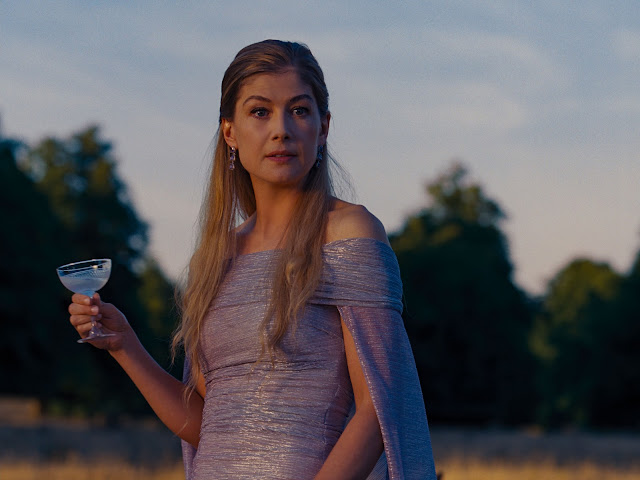An intense, lingering ache permeates Belgian / Congolese multi-talented (a musician, and now a filmmaker) Baloji’s inspired and bold directorial debut (the film won the Un Certain Regard – New Voice Prize at Cannes). There is the pervasive sense that no one can ever truly feel settled. The film skillfully delves into different aspects of displacement, separated acts from the perspectives of four people, but centers mainly upon Koffi (Marc Zinga), a thirtysomething Congolese man who lives in Belgium with his partner Alice (Lucie Debay). The two travel to his hometown of Kinshasa where the film mostly takes place. There, Koffi and Alice are immediately met with distrust and quiet hostility from the townspeople and his own family. When one of his sisters lets Koffi hold her child, a sudden nosebleed accidentally starts dripping on her baby’s face, prompting shrieks of horror and accusations of Koffi invoking a curse. This is one of the many instances within the story’s subject matter and the film’s own aesthetics where tensions lie in the chasms and overlaps of superstitions, science, surrealism, “reality,” intellectualism, religion, and folklore. Artfully, the film never advocates for nor imposes a single stance, but instead explores thorny territories of morality, mortality and belonging.
We also meet young Paco (Marcel Otete Kabeya), a dancer donning a tattered pink ballet outfit who performs in the street with a gang during Easter celebrations. Like Koffi, he also has a sudden seizure—one of the prophetic motifs in the film, alongside babies, milk and blood—symbols of life and death. Paco also engages in wrestling matches before lively crowds, and soon ends up in a turf row with another street group, who flips a school bus—the living quarters of Paco’s clan. The people of Kinshasa reside under the shadows of mines which loom imposingly over many scenes in the film.
Tshalia (Eliane Umuhire), the fresh and lovely younger sister of Koffi, unmarried and also estranged from the rest of her family, learns she may have contracted an STD. These three characters are sympathetically portrayed as outcasts of this society. There is a push and pull of townsfolk challenging, and also, especially in Paco's sense, discarding them, but also needing them (as in Paco's performances, or when a harmonizing group of salespeople humorously appear at Tshalia’s door).
The film is dynamically shot by Joachim Philippe; two sequences in particular are visual stunners: a Hansel and Gretel retelling (with its vibrant green trees and billowing hot pink smoke), and a dream sequence of Koffi’s mother, Mama Mujila (Yves-Marina Gnahoua). In her arresting story, set months later in September, she is grieving the death of her husband. The glowing colors of earlier have now faded into the striking, rich black and brown hues of night. Weary and alone, she wakes in bed to an expanse of a desolate landscape dotted with burning effigies (a stunning shot). At one point, she kneels and begins to desperately dig into dirt, as if to resurrect her buried husband—the scatter of rocks she tosses away above the earth hauntingly sounding like the knick-nocking of bones. ***
-Jeffery Berg









.png)
